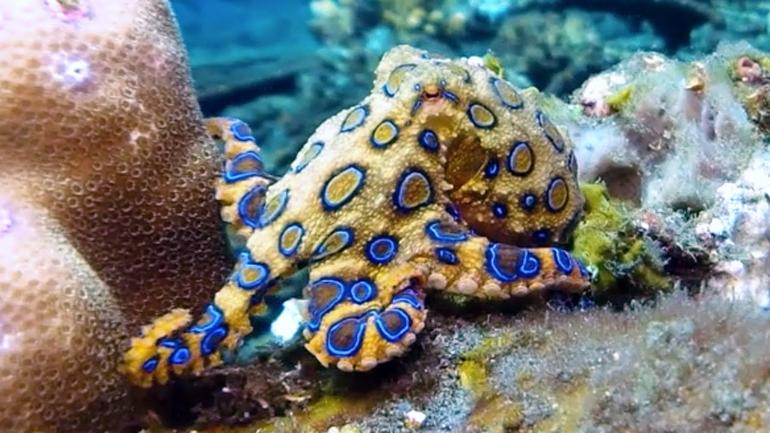Male’, Maldives – Maldives Marine Research Institute (MMRI) alerts the citizens to be on the lookout for the venomous blue-ringed octopus in the Maldivian sea.
Although blue-ringed octopuses are not usually found in Maldives, MMRI this Sunday alerted the citizens of the venomous creauture after spotting a few of them in the Maldivian sea recently.
MMRI informs that unlike
While touching or attempting to handle a blue-ringed octopus is likely to appear as threat to the octopus, MMRI warned the citizens to avoid contact with a blue-ringed octopus as the painless bite of this tiny octopus can be fatal to humans. In fact, the venom of blue-ringed octopus is known to be 1,000 times more powerful than other octopuses, having enough venom to kill upto 26 humans within minutes. Hence, it is recognized as one of the most dangerous animals in the ocean.
A blue-ringed bite would immediately block the nerve signal throughout the body, causing muscle numbness, quickly followed by nausea, vision loss or blindness, loss of senses and loss of motor skills as well. In addition to this, the venom is also proved to cause muscle paralysis—including the muscles needed for humans to breathe, leading to respiratory arrest. Although there is no known antidote for the venom of blue-ringed octopus, victims can be saved if artificial respiration is started immediately.
MMRI however, warned the citizens to avoid picking up a blue-ringed octopus or holding it in tanks even though it looks tiny and innocuous.





